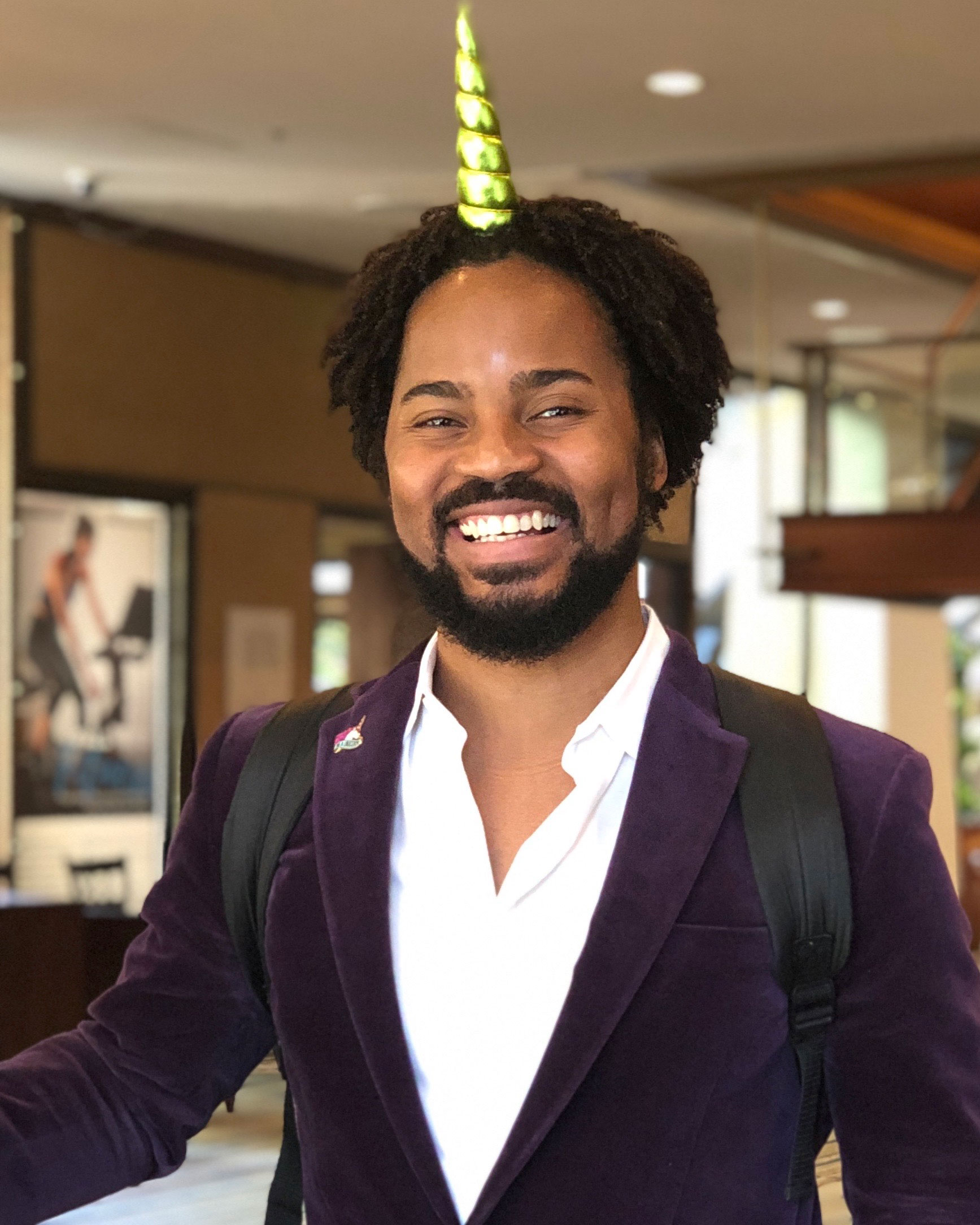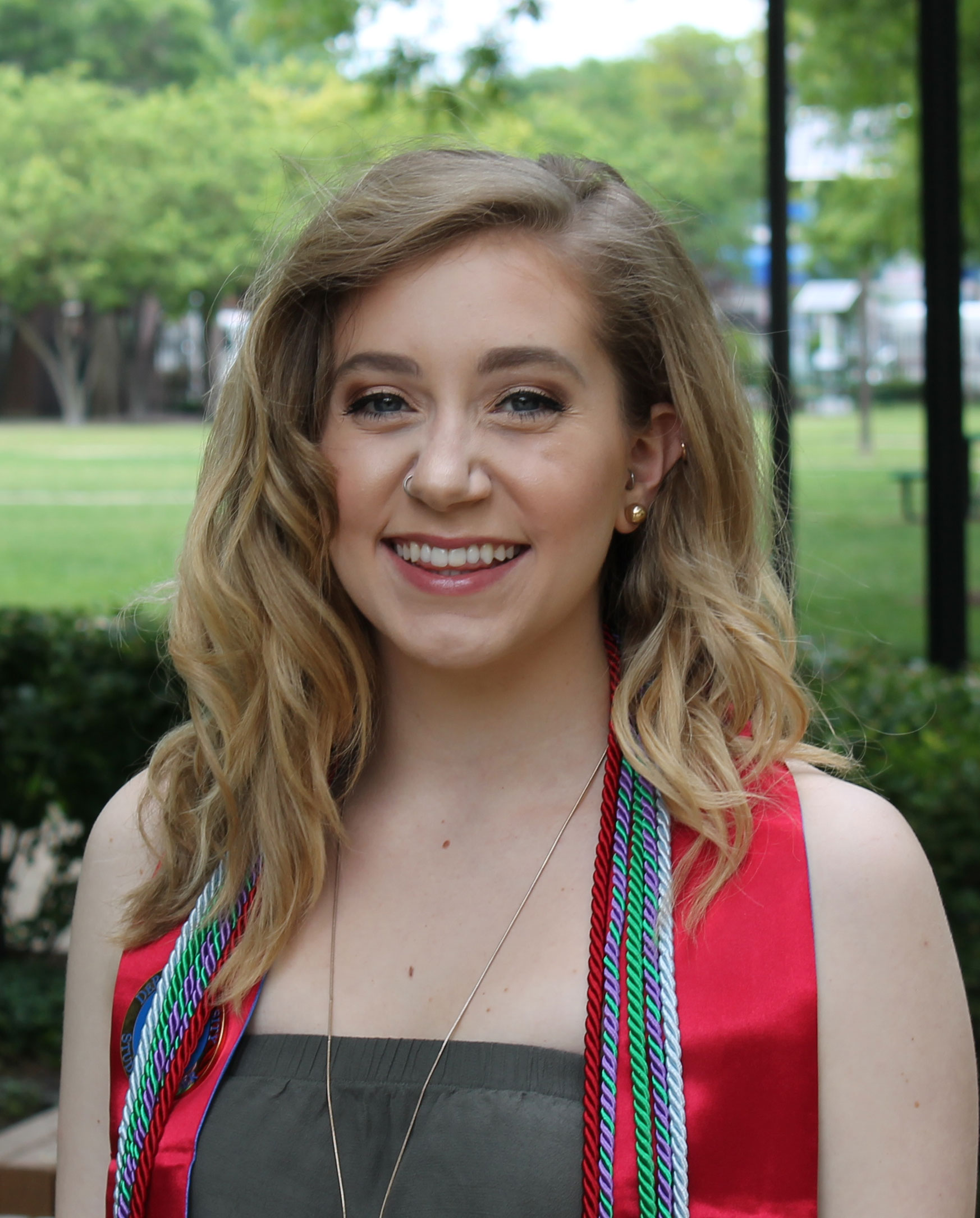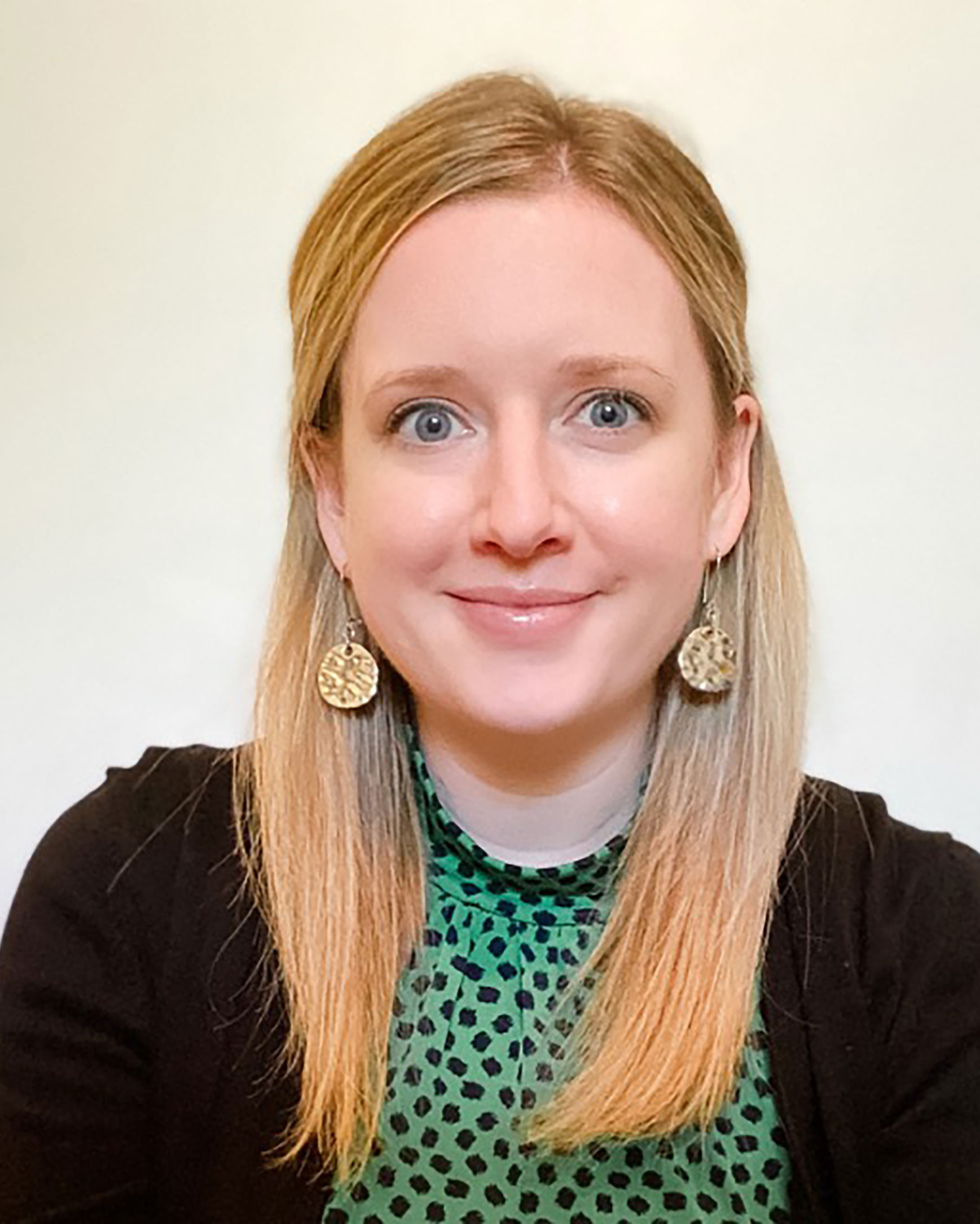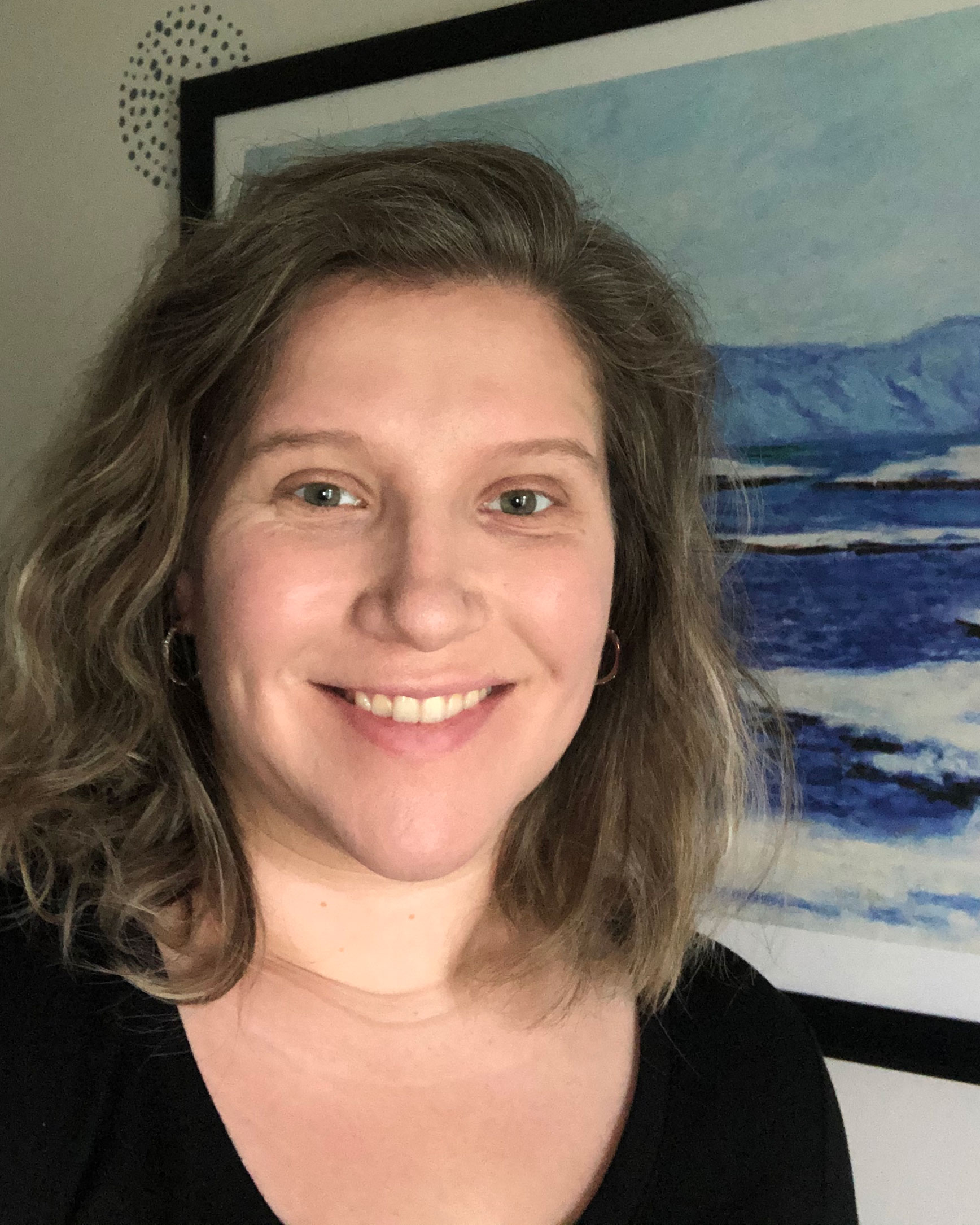Advice and Reflections During the Time of COVID-19
Across the nation, Americans are recognizing now more than ever before the critical service educators and counselors provide our children. Of course, this was always apparent to us in the College of Education. The work of teachers, counselors, and educational leaders is demanding, both intellectually and emotionally. But we in the field of education also understand that no two students are the same, and that employing all of our knowledge, resources, networks, and experiences allows us to adapt to meet our students’ unique needs. Below, some of our esteemed alumni share their advice for navigating schooling at home, and how the College of Education prepared them to successfully adapt to remote instruction and counseling.

Brian Coleman
MED 2014 Education (Counseling)
Department Chair, Counselor
Jones College Prep
2019 National School Counselor of the Year
On advice for teachers and counselors during schooling at home:
“Be patient - with your students, families, colleagues, and, most importantly, yourselves. Though we are trying to replicate as much normalcy as possible, I think that it is important to remember that this period of time is actually not normal. At all. You and your stakeholders are not feeling, thinking, and/or acting as you normally would - and that's okay. We all respond to crisis in different ways, and we all deserve additional grace, validation, and patience.
“In the midst of so much uncertainty and fear, I think it is so important to focus on the "the next right thing". You don't need to have all of the answers - just focus on the next right thing you can do in your role to support your students and yourselves. And, keep doing so. Though we are remote, we are not working or functioning alone. Reach out. Leverage your colleagues, mentors, administrators, etc. as you strategize and execute your next steps. We all have parts to play. Collaboration and effective communication are more important now than ever before.”
On the “digital divide” and marginalization:
“The relationship between technology and education is so important to the future of our respective fields. It is so important for educators to learn how to leverage technology tools in our various roles, especially considering the evolving role of remote/e-learning in the educational landscape. [The] global pandemic has highlighted glaring (and pre-existing) issues of equity and access in our communities. The "digital divide" is one of many areas of marginalization and we must do our parts as educators to advocate on behalf of our most vulnerable populations.”
“[The] COE really asserted the importance of "Vincentian Personalism" and supporting marginalized populations and I can't think of a more important commitment in the wake of COVID-19.”
On the COE’s role in preparing Mr. Coleman for counseling amid COVID-19:
“COE taught me about comprehensive school counseling and the need to take a data-informed approach to the work. My counseling team continues to collect data [regarding] student demographics, social/emotional, academic, and post-secondary needs (as well as technology access), and this information directly informs our counseling-specific and school-wide programming during this remote learning period."
“COE also taught me to think about holistic student development and trauma in ways that have become incredibly important in the wake of COVID-19. Our communities are experiencing an unprecedented shared trauma and the long-term effects of it are yet unknown. As we look to the fall and potentially returning to schools in some capacity, our school teams should prepare as best we can to provide social/emotional learning and supports and trauma-informed practices All school stakeholders will need to play a role in that process.”

Taylor Denning
BS 2018 Education (Special Education)
Special Education Teacher
Pritzker School
On believing in yourself as an educator and showing up for students:
“The most important thing you can remember--especially when you're overwhelmed, anxious, and unsure, which will inevitably happen-- is that you are capable and equipped to teach your students and give them what they need while they're at home. You can absolutely do this, even though it may be messy. Your students don't care if your technology is state of the art or if you have the best at-home classroom set up. They just need you to show up for them, wholeheartedly. If you're doing that, you're doing plenty. It is so easy to feel like you're failing [your] students when you can't see them grow face-to-face, but you're absolutely succeeding at being the guiding light they need during this time. Give yourself credit for the hard work you are doing. You're making history right now!”
On asking yourself the tough questions:
“This time has redefined my role as a teacher. I feel like it has forced me to go back to basics and really look inward about the type of educator I want to be, and ask myself the hard questions: When you don't have all of the bells and whistles of your classroom environments, the in-school technology, the fancy new activities, how can you still get through to kids? How can you push them to achieve their full potential? This remote learning journey has pushed me to become a better, more creative teacher.”
On connecting with students on an emotional level:
“I have learned that teachers will go above and beyond to connect with students in a meaningful, interactive way. I am in awe of this community of educators who haven't skipped a beat. Above all, I have learned, like I do time and time again, that students really just need you to believe in them and remind them that they're safe and doing great. My most meaningful time online with my students is spent simply listening to what they're up to, or addressing their concerns about the state of the world. Remote learning has heightened the truth that students need you to love them first, teach them second.”
On the COE, innovation, and creativity:
“I truly owe so much of willingness to face the challenges during this time to COE. DePaul's College of Education shapes well-rounded educators who address the whole child, no matter what the medium. COE provided me with a wealth of knowledge about Special Education practices which is undoubtedly useful during this time, as it always is. But most importantly, they instructed me on how to be innovative and creative in order to appropriately meet kids' individual unique needs. Remote learning has been a long journey of figuring out how we as educators can support our kids and meet their needs in an entirely new way. I revisit my experiences, practices, and materials that I acquired at COE, every single day as a teacher, and especially during online learning.”

Amy Gambrel
MED 2011 Education (Language, Literacy, & Specialized Instruction)
Senior Director of Student Supports
Perspectives Charter Schools
On authenticity and incentives:
"Let go of mindsets around compliance and rigor (though those are still important) and focus on the social emotional well-being of your students. Start your classes with fun community builders and let your students know that you are there for them. When our students trust us and know that we care, we can have more authentic conversations with them and they will be more likely to engage in our lessons. For students who are really struggling, try incentives. A handwritten note or postcard, or even a small care package sent home tells them “You matter--I’m thinking about you” and can help to reengage them in learning. Incentives can also help kids persevere as we navigate the complexities of learning remotely."
On perseverance of teachers and schools:
"I have learned so much during this process, and I am still learning! In a matter of days everything I knew about teaching and learning, and supporting students with disabilities felt like it went out the window! The initial first weeks after our schools went remote were the most challenging I’ve ever experienced in my career. My biggest takeaway from it all is that educators are incredible! With no preparation or planning, we kept kids learning. Schools did whatever it took to make it happen. I am in awe of all of the teachers, and especially the special education teachers, in my network that are finding creative ways to reach out and teach. This pandemic is allowing us to be innovative and rethink education, and that is so exciting!"
On the power of education:
"The College of Education at DePaul prepared me to meet the challenges of this pandemic by instilling a strong work ethic and grounding me in the mindset that education is a powerful tool. The long term impact a quality education has on students is immeasurable, and every child deserves to have the best educational experience possible. As I continue to navigate this new landscape, I keep that in the forefront of my mind as we plan and evolve what learning looks like outside of a brick and motor school."

Judith Tichacek
MED English 2019
Librarian
Fenwick High School
On the fear of failure:
“I think because this is an event most educators have never encountered before, we are afraid of failing. This is new territory for all of us – including our students. We need to be okay with recognizing failure. Failure means that we just have to go back to the drawing board and try again. We should take this opportunity to still try new things, incorporate new material, and take stock of what our students are saying to us. If what we’re working on doesn’t work, we should continue to keep trying.”
On teamwork:
“I also think collaboration is important during this time, especially outside our departments. We may feel like we are going through this alone, but we’re not! Maybe now might be the time to think about working with other departments, or to reach out to that colleague that you’ve been meaning to talk to about their amazing lessons. As an example, in a recent webinar I attended, there was a group of elementary teachers who collaborated together to make video lessons on different subjects so that any teacher in their district could use them. That not only allowed teachers to save time individually and allowed them the opportunity to share work with educators they might not normally see, but also help them prepare and create a plan for that lesson in the future.”
On the need for student input:
“While it’s tempting to try many different apps in your virtual classrooms and incorporate different ways of conveying and analyzing information, it’s important to remember what your students need. Listening to your students and what they feel comfortable with is important. Make them feel like they have some control in a situation where almost no one has any control at all.”
On the value of face-to-face instruction, while remotely teaching:
“Let your students see your face! I didn’t think that students seeing their teacher’s face would be such a big deal, but it is – at least that’s what my students say! If your school allows synchronous meetings online, take advantage of it. It not only mimics the classroom experience a bit, but you can see their smiling faces and ask them what they have been doing to pass the time besides classwork. It resembles a routine that many of us miss right now.”
On self-preservation, as an educator:
“[Don’t] take on too much during this time. I tried to make online video lessons on misinformation and webpage evaluation – something I was planning on as a goal for next year – but the editing of the videos, gathering materials, and other tasks associated with this goal definitely took up more time than I had originally planned. Rather than risking my sanity, I tabled the goal and decided to make a detailed list of what I need to do for that goal instead. I still got some work done, but within the realm of what I could handle at that time.”
On the elephant in the room and wise words from a COE professor:
“I think the most important thing the College of Education program helped me realize is that students need the elephant in the room addressed. A professor of mine, Professor Kiel, helped me realize that students are just as scared – even more so – than us right now. We should be talking about how we cope at home, what we do to destress every day, and how we can incorporate reflection and gratitude into our lessons regularly. Acknowledging our fears together makes us less afraid of what’s to come and we can come together as a stronger community when school opens once again.”